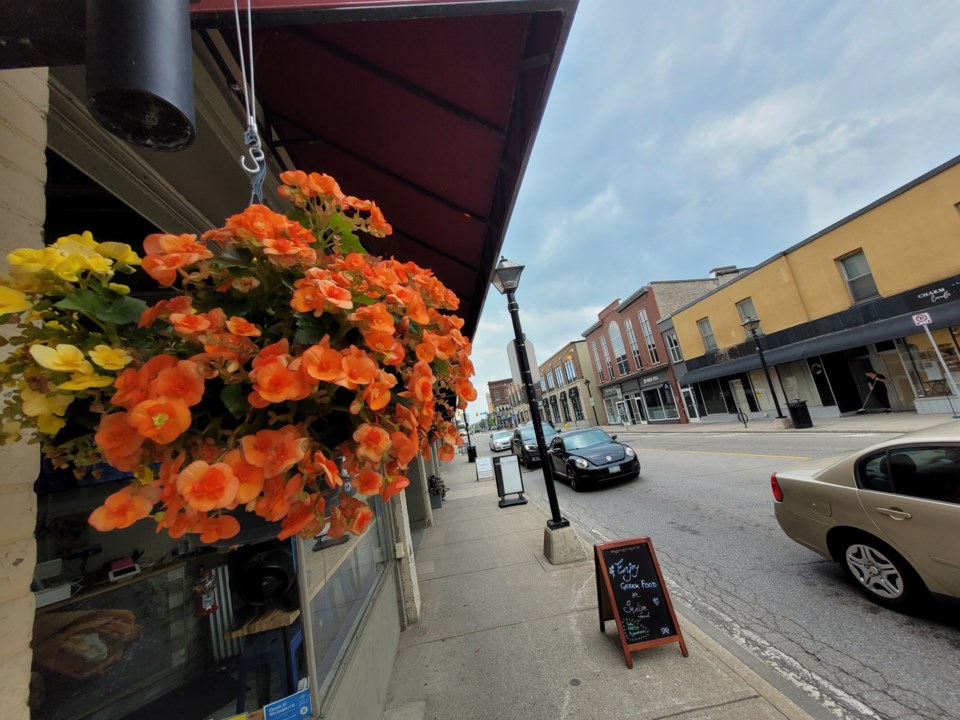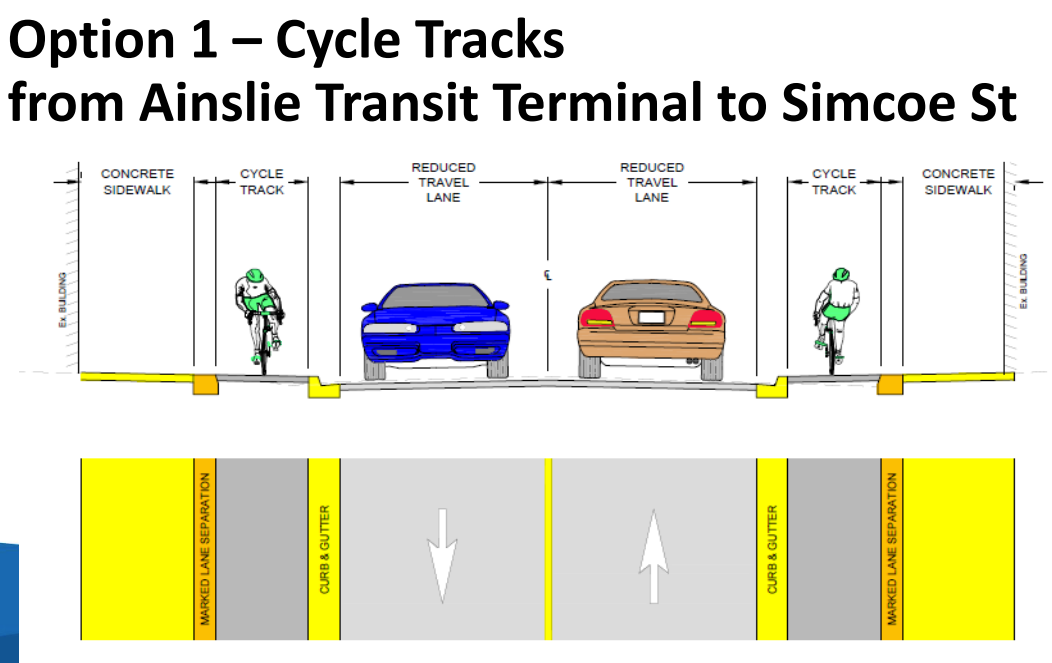The idea of being able to hop on a bike and safely ride through downtown Galt could become a reality in the next four years.
The Region of Waterloo provided an update Tuesday on its plans to add dedicated cycling tracks to Ainslie Street between the Ainslie transit terminal and Simcoe Street once it begins reconstructing the street in 2026.
Project engineer for the reconstruction, David Di Pietro told the region's active transportation advisory committee that during a November public meeting on the plan, nearly 70 per cent of respondents supported the idea of cycling tracks on Ainslie and the elimination of on-street parking.
But despite the popularity of the idea, about 30 per cent still support on-street parking along Ainslie, which is why the region will continue to present a second option when it returns to the public for more feedback next month.
Other comments received last fall supported increased safety measures for pedestrians along the stretch, heard from 24 per cent of respondents, while 24 per cent supported a complete truck ban along Ainslie.
Only 10 per cent of respondents supported the removal of left turn lanes, but Di Pietro said that will still likely be the recommendation from staff when it's tabled for council consideration later this year.
"Even though we're looking at removing left turn lanes, we're not looking at removing left turn movements," he said.
The Downtown Cambridge Business Improvement Area supported the project while expressing some concern around provision of parking for customers and the implications of a downtown truck ban affecting deliveries and pick ups.
The BIA would like to see streetscaping included in the project and support for businesses during the construction, which is expected to take up to two years.
The region will host a second virtual meeting with the BIA in April, followed by a public information session.
Detailed design for the project will continue this year and next with utility work and tenders for the project expected to go out in the fall of 2025.
The project includes replacement of underground and surface infrastructure.
Construction will begin in the spring of 2026 and is expected to be complete by 2028.
ATAC member Bob Publicover called Ainslie Street an area primed for improvement but noted it's always difficult to find parking and said he's concerned how the design of street will impact the ability to service the businesses.
"I'm not sure the street is wide enough to accommodate two bike lanes," he said.
Di Pietro said the region is working with businesses to come up some solutions around access while trying to implement the most equitable number of options available for transportation.
"Just because there are alternate routes for cyclists through Cambridge doesn't mean we're not going to explore the option on Ainslie," he said, adding the cycle tracks will provide a net benefit for current and future generations since they'll have more options to get around.
Councillor Pam Wolf wondered if the left turn lanes from Park Hill Road onto Ainslie would remain in place and if Water Street North would have to be reworked to accommodate two way traffic once the Cambridge Mill project comes into play.
She called Ainslie an "extremely well used car route" between the Bridges shelter and the downtown that bottlenecks at rush hour.
ATAC member Jeff Miller lives in Waterloo and said the cycle track the region added to Columbia Street is often clogged with delivery trucks. He prefers a separated bike lane because of it.
But Di Pietro said the design for the Ainslie Street cycle tracks would be a full barrier curb to prevent trucks from mounting the lane and blocking cyclists.
"At this point we haven't decided where we're going with the design," Di Pietro said, adding that's why both options, one without the cycle tracks and one with an allowance for on-street parking, will be presented to the public next month.
Tom Strickland, who represents Cambridge on the cycling advocacy group Cycle Waterloo Region supports the cycling track option and believes the loss of parking spaces on Ainslie will still leave ample parking spaces in core.
"The loss of direct on-street parking is not a serious issue, particularly when you consider that adding bike lanes typically increases sales at shops on the route," he wrote in an email to CambridgeToday in a summary of comments CycleWR provided to the last committee meeting.



.png;w=120;h=80;mode=crop)
